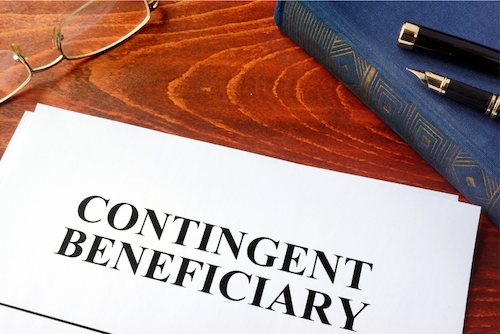Beneficiary Designations Part 1: The Basics
You have your expertly-drafted will or trust. Great! But now you need to make sure you don’t mess up your whole plan by not aligning your beneficiary designations with your estate plan.
What are beneficiary designations? They are essentially agreements you make with your financial institutions, insurers, and even state government that ensure the distribution of your assets to persons of your choosing after you die.
Life insurance and retirement accounts are probably the first types of assets people think of when they think of beneficiary designations. But such designations can also be created for your bank accounts, investment accounts, bonds, and even real estate.
Having a good understanding about your respective beneficiary designations is paramount for having an estate plan that works the way you want it to. Not having a good understanding could wind up wrecking your entire plan, and could actually do more harm to your family than good.
This article is the first part of a two-part series on beneficiary designations. This article will deal with beneficiary designation basics. So, without further ado, here are five basic points you should know about beneficiary designations.
Assets passed by beneficiary designation avoid probate. If you have a will-based estate plan but have beneficiary designations completed for all of your assets, guess what. Your will isn’t going to be used! Assets that pass by beneficiary designation do so by contract, not by probate. So, after an individual passes away, his heirs will need to fill out some paperwork and provide a death certificate, and the assets that pass by beneficiary designation will be delivered to them without a minute spent in probate court.
Beneficiary designations control over will and trust designations. It does not matter what your will or trust says about your life insurance proceeds. Who you list in your beneficiary designation is who will be receiving the check. This is true for all assets that pass by beneficiary designation. So, if you do get a will or trust, be darn sure your beneficiary designations don’t make what you write in your will or trust meaningless!
Your creditors will still come calling. Creditors have rights to stake claims against an estate, whether it passes through probate or through trust administration. They also can come after assets that are passed by way of beneficiary designation! So, don’t think you’re pulling a fast one on your creditors simply by having your assets pass by way of these agreements. Your creditors will find out, and they will come to your beneficiaries looking for what is owed to them.
What happens if one of your beneficiaries predeceases you? Honestly, I don’t know. I don’t know, because it all depends on what your account holder put in the beneficiary designation agreement. Most of the time, the assets designated to a beneficiary would instead pass to his or her children equally. But sometimes those assets would instead be divided up equally among the other named beneficiaries. You have to check the fine print in your beneficiary designation agreements to know for sure.
You can put a beneficiary designation on your real estate in Wisconsin. I alluded to this earlier, but Wisconsin does have what are called TOD (transfer on death) deeds. They work just like any beneficiary designation you would have on an insurance policy or account. The property will pass to the named beneficiaries upon your death without probate. And unlike a life estate deed, these designations are revocable, so you can change your mind later on if you need to.
Those are what I would consider to be the basics for beneficiary designations. They sound great, right? Heck, they sound like something you can base your entire estate plan on and avoid a lot of costs, right? Well, in part two of this series, I will tell you exactly why you should NOT base your estate plan on beneficiary designations. Stay tuned.
For more information on estate planning or to schedule your free initial appointment, contact me at (920) 221-0320 or By Email.
Beneficiary Designations Part 1: The Basics

